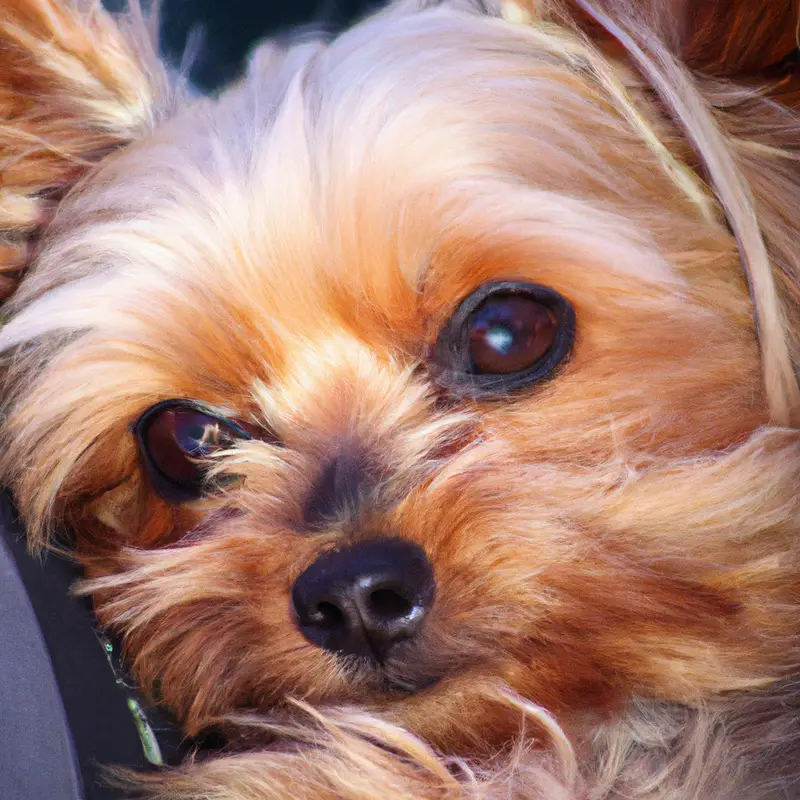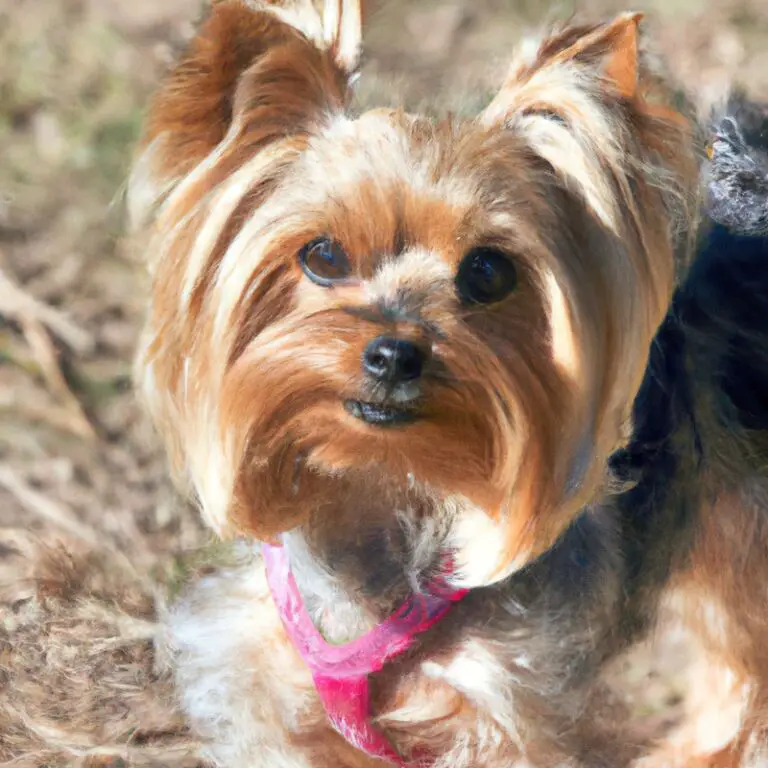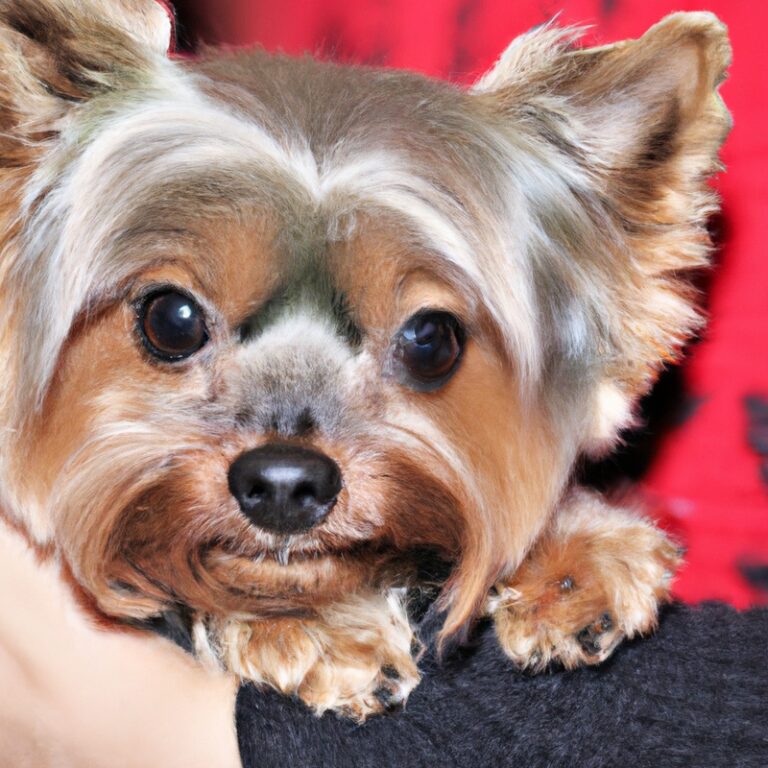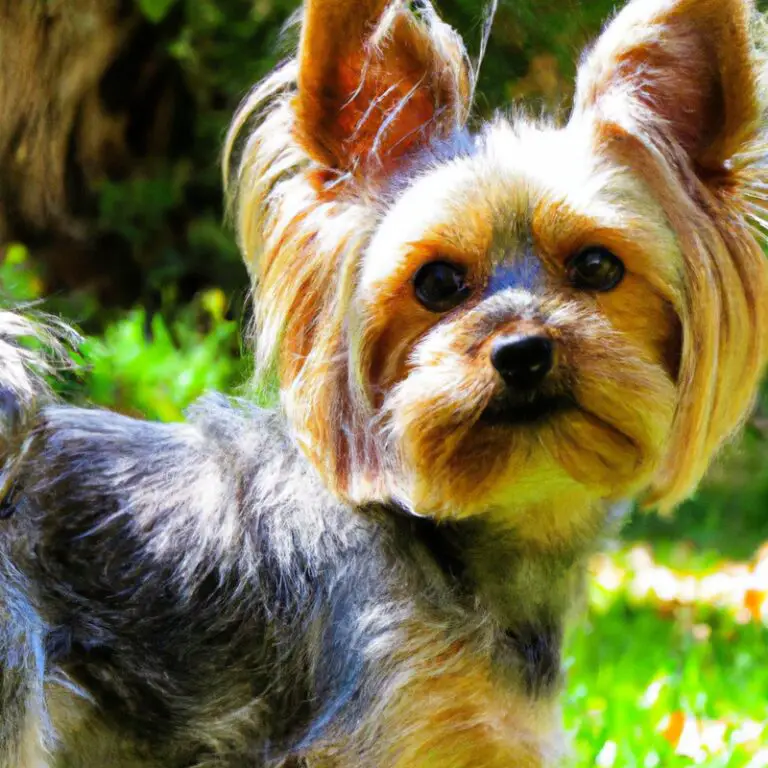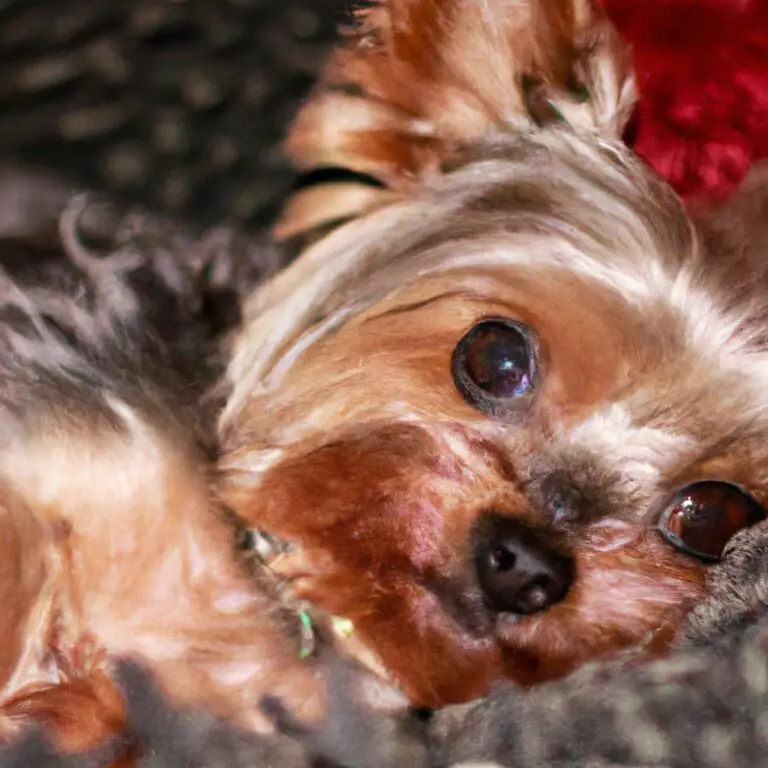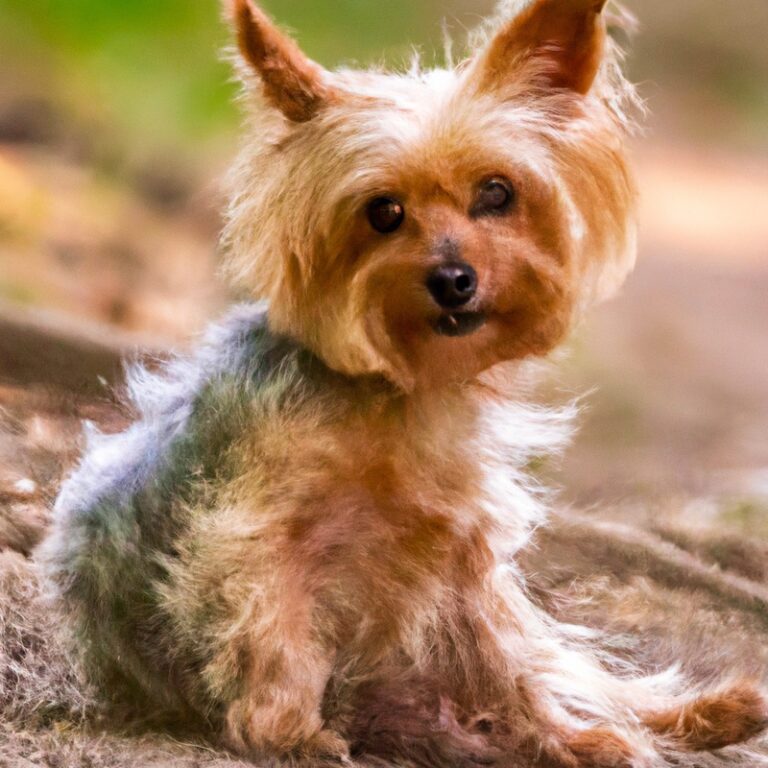How Do I Prevent My Yorkshire Terrier From Nipping Or Biting?
Key Takeaways:
- Start with early socialization and positive reinforcement training to prevent nipping or biting behaviors in Yorkshire Terriers.
- Use appropriate chew toys and redirect their attention when they show signs of nipping or biting.
- Consistency and patience are key when trying to prevent nipping or biting in Yorkshire Terriers.
- Seek professional help if the nipping or biting behavior persists despite your efforts.
Are you tired of your Yorkshire Terrier nipping or biting? Don’t worry, you’re not alone.
As a seasoned dog owner and trainer, I understand the frustration and concern that comes with this issue.
But fear not! In this article, I’ll walk you through effective strategies to prevent nipping and biting in your Yorkshire Terrier, ensuring a safe and harmonious environment for both you and your furry friend. From understanding their behavior to implementing training techniques and creating a positive routine, we’ve got you covered.
So let’s dive in and put an end to those pesky nipping habits!
| Prevention Techniques | Effectiveness |
| Positive Reinforcement Training | Highly effective |
| Distract and Redirect | Moderately effective |
| Teach Bite Inhibition | Moderately effective |
| Socialization | Highly effective |
| Never Use Physical Punishment | Highly effective |
Understanding the Yorkshire Terrier’s Behavior
The Instincts Behind Nipping and Biting
When it comes to nipping and biting, it’s important to understand the instincts behind these behaviors in Yorkshire Terriers. First and foremost, it’s crucial to remember that dogs, including Yorkies, have natural instincts that drive their behavior.
These instincts can include a desire to establish dominance, protect their territory, or communicate their needs.
Nipping and biting can be a result of fear, frustration, or a lack of proper socialization. It’s essential to provide your Yorkshire Terrier with positive experiences and training from an early age to prevent these behaviors from developing.
Another instinctual reason behind nipping and biting is teething.
Just like human babies, puppies go through a teething phase where their gums are sore and they feel the need to chew. Providing appropriate chew toys and redirecting their biting behavior towards these toys can help satisfy this instinct.
Furthermore, Yorkshire Terriers, like many other breeds, have a strong prey drive ingrained in them.
This drive can make them more prone to chasing and nipping at moving objects, such as children or small animals. Proper socialization and training can help manage and redirect this instinct in a positive way.
Understanding the underlying instincts behind nipping and biting can help you address these behaviors more effectively.
By incorporating positive reinforcement training techniques, addressing any underlying fear or frustration, and providing appropriate outlets for their instincts, you can help prevent your Yorkshire Terrier from nipping or biting.
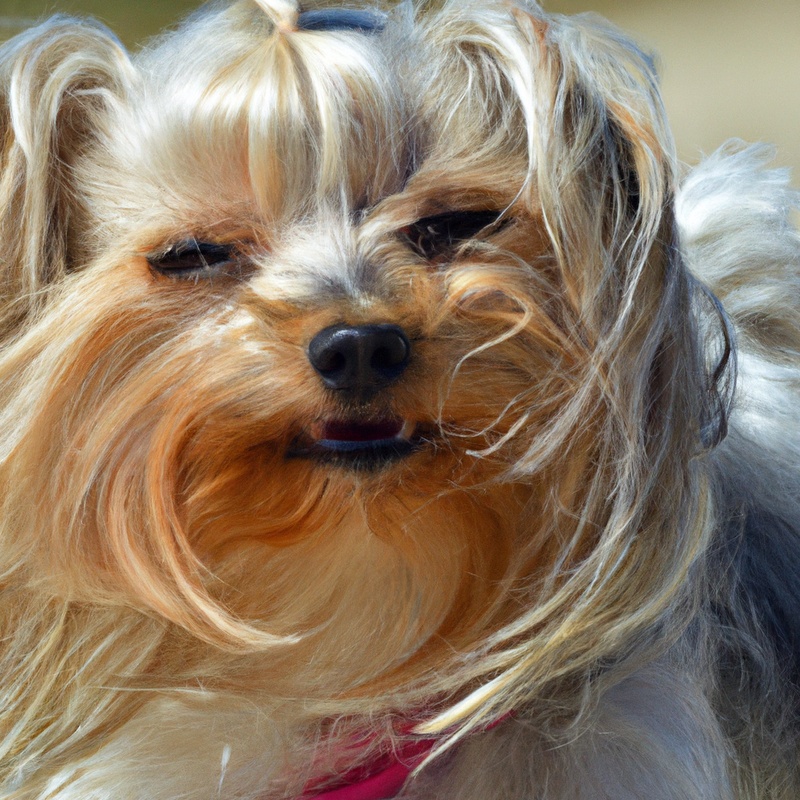
Recognizing Triggers for Nipping and Biting
Recognizing triggers for nipping and biting is crucial for keeping your Yorkshire Terrier’s behavior in check. By understanding what sets them off, you can take proactive measures to prevent these unwanted actions.
First and foremost, pay attention to your dog’s body language.
Pinned back ears, raised fur, and a tense posture can be signs of agitation. Additionally, be mindful of stressful situations such as loud noises, unfamiliar people, or crowded spaces.
It’s also important to recognize when your dog is feeling threatened or protective.
By recognizing these triggers, you can create a safe and calm environment for your Yorkshire Terrier, reducing the chances of nipping or biting incidents.
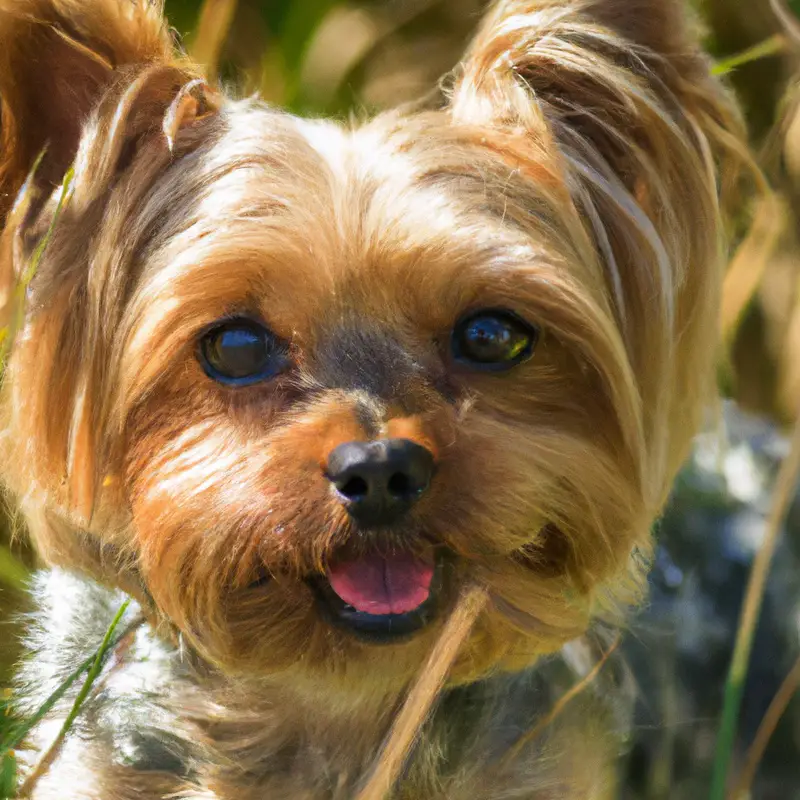
Factors That Contribute to Nipping and Biting
Nipping and biting behavior in Yorkshire Terriers can be caused by various factors. One common factor is fear or anxiety.
When a Yorkie feels scared or threatened, they may resort to nipping or biting as a defense mechanism.
Another factor can be improper socialization. If a Yorkie hasn’t been exposed to different people, animals, and environments from a young age, they may not know how to properly interact and may resort to nipping or biting out of fear or uncertainty.
Additionally, teething can also contribute to nipping and biting behavior.
Just like human babies, Yorkie puppies go through a teething phase where their gums can be sore and itchy. They may nip or bite to relieve the discomfort.
Lack of training and boundaries can also be a contributing factor.
If a Yorkie hasn’t been taught proper bite inhibition or if their behavior isn’t consistently corrected, they may continue nipping and biting as they grow older. Lastly, any underlying medical issues, such as pain or discomfort, can also lead to nipping and biting behavior.
If your Yorkie suddenly starts displaying aggressive behavior, it’s important to rule out any potential health problems by consulting with a veterinarian.
Understanding these factors can help you address and prevent nipping and biting behavior in your Yorkshire Terrier.
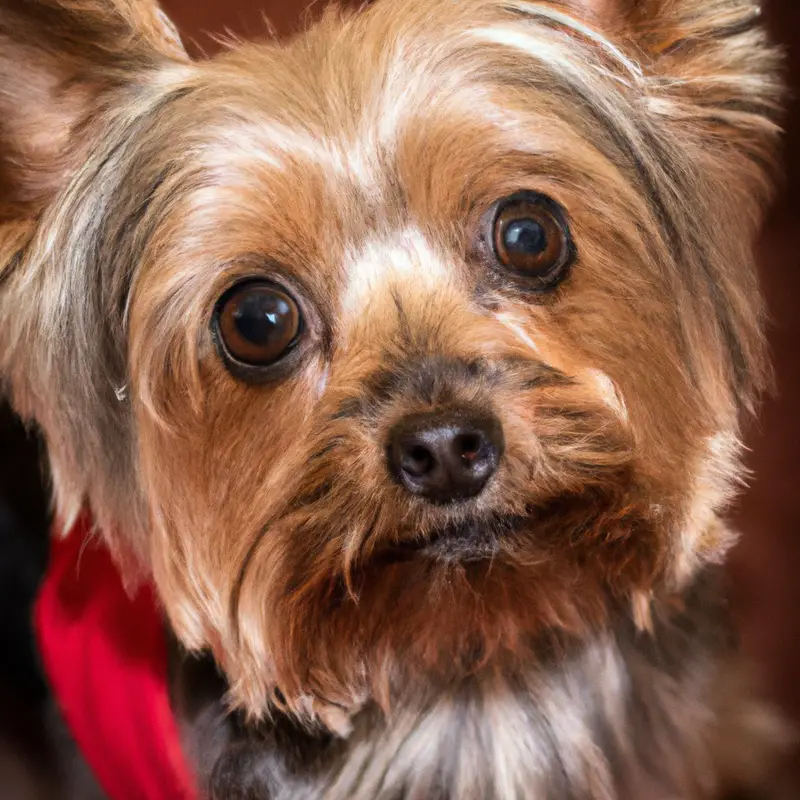
Establishing a Safe and Positive Environment
Providing Appropriate Toys and Chews
When it comes to preventing your Yorkshire Terrier from nipping or biting, providing them with appropriate toys and chews is key. First and foremost, make sure to have a variety of toys that are specifically designed for small dogs like Yorkies.
These toys should be durable and made from safe materials to withstand their chewing habits.
Look for toys with different textures and interactive features to keep your pup engaged and entertained. In addition to toys, consider providing your Yorkshire Terrier with appropriate chews.
Chews can help fulfill their natural instinct to chew while also promoting good dental health.
Opt for chews that are specifically made for small breeds, such as dental chews or bully sticks. Avoid chews that are too hard or small, as they can pose a choking hazard.
By incorporating these appropriate toys and chews into your Yorkie’s daily routine, you can help redirect their biting behavior onto more appropriate items.
Remember to supervise your dog while they are playing or chewing, and replace any worn-out or damaged toys to ensure their safety.
Creating a Consistent Routine
Creating a consistent routine is key to preventing nipping or biting behavior in your Yorkshire Terrier. First and foremost, establish a regular schedule for feeding, walks, and playtime.
This will help your dog feel secure and understand what is expected of them.
Additionally, make sure to consistently reinforce appropriate behavior and provide positive reinforcement when your dog behaves well. Consistency in your actions and expectations will help your Yorkshire Terrier understand the rules and boundaries, reducing the likelihood of nipping or biting.
Setting Clear Boundaries and Rules
Setting clear boundaries and rules is essential when it comes to preventing your Yorkshire Terrier from nipping or biting. First and foremost, consistency is key.
Make sure everyone in your household is on the same page and enforces the same rules.
This will help prevent confusion and send a clear message to your pup. One effective rule is to never allow rough play or games that encourage biting.
Teach your dog appropriate ways to play, such as using toys or fetch games.
If your Yorkie starts nipping, immediately redirect their attention to an appropriate toy or activity. Another important boundary to set is not allowing your dog to nip or bite during interactions with people.
If your Yorkie nips, firmly say “no” and withdraw your attention briefly.
This helps them understand that nipping is not acceptable behavior and results in a loss of attention. Consistently rewarding your dog for good behavior is also important.
Praise and reward your Yorkshire Terrier when they display calm and gentle behavior, reinforcing the desired actions.
Training Techniques for Nipping and Biting
Socialization and Exposure to Different Situations
Socialization and exposure to different situations play a key role in preventing nipping and biting in Yorkshire Terriers. It’s important to introduce your Yorkie to a wide range of people, animals, and environments from a young age.
This helps them become comfortable and confident in various situations.
Taking your dog to obedience classes, hosting playdates, and going for walks in different places are great ways to socialize and expose them to new experiences. Regular positive interactions will help your Yorkie develop good behavior and reduce the likelihood of nipping or biting.
Redirecting Behavior with Positive Reinforcement
Redirecting behavior with positive reinforcement is an effective and gentle way to train your Yorkshire Terrier and prevent nipping or biting. Instead of scolding or punishing your pup for unwanted behavior, try redirecting their attention to something more appropriate.
First and foremost, make sure you have plenty of enticing toys and treats on hand.
When your Yorkie starts nipping or biting, gently take their mouth off of you and give them a toy or chew treat to redirect their focus. Praise and reward them when they engage with the toy instead of your hands or clothing.
Another helpful technique is to teach your Yorkie basic commands like “sit” or “leave it.” When they exhibit nipping or biting behavior, give them a command to redirect their attention.
Once they comply, reward them with praise and treats. Consistency is key when using positive reinforcement.
Be patient and persistent with your training efforts.
Over time, your Yorkie will learn that good behavior leads to rewards, and unwanted behavior is not rewarded.
Using Calm-Down Techniques during Excitable Moments
During excitable moments, it’s important to use calm-down techniques to prevent nipping or biting behavior in Yorkshire Terriers. First and foremost, try redirecting their attention to a more appropriate activity, such as playing with a toy or engaging in a training exercise.
Additionally, you can use soothing words and a gentle touch to help them relax and calm down.
Creating a calm environment with minimal distractions can also be beneficial.
Correcting Nipping and Biting Behaviors
Reacting Appropriately to Nipping or Biting Incidents
Reacting appropriately to nipping or biting incidents is vital for both your safety and the well-being of your Yorkshire Terrier. Here are a few tips to help you respond effectively:
- Stay calm: It’s important to remain calm and composed when your Yorkshire Terrier nips or bites. Dogs can sense our emotions, and reacting with anger or aggression may escalate the situation.
- Redirect their behavior: Instead of scolding or punishing your dog, redirect their attention to a more appropriate behavior. Offer them a toy or treat to chew on, or engage them in a game or training session to divert their focus.
- Use positive reinforcement: Reward your Yorkshire Terrier when they exhibit gentle behavior. This will help them understand that being gentle earns them praise and rewards, encouraging them to repeat the behavior.
- Teach bite inhibition: Train your dog to have a soft mouth by gently yelping or saying “ouch” when they nip or bite. This mimics how their littermates would react and helps them learn to control their bite pressure.
- Seek professional help if necessary: If your Yorkshire Terrier’s nipping or biting behavior persists or escalates, it’s advisable to consult a professional dog trainer or behaviorist. They can provide personalized guidance and support.
By reacting appropriately to nipping or biting incidents, you can help your Yorkshire Terrier learn appropriate behavior and maintain a safe and harmonious relationship with your furry friend.
Avoiding Actions that May Encourage Nipping or Biting
Avoiding Actions that May Encourage Nipping or Biting First and foremost, avoid rough play with your Yorkshire Terrier. Rough play can actually encourage nipping and biting behaviors, as your dog may see it as an acceptable form of interaction.
Another important action to avoid is teasing your Yorkie.
Teasing can frustrate and agitate your dog, leading to defensive nipping or biting. It’s also crucial to avoid punishing your Yorkie physically.
Physical punishment may only escalate their fear or aggression, and they might resort to nipping or biting as a means of self-defense.
Additionally, try not to encourage your Yorkie to guard objects or food. This possessive behavior could lead to nipping or biting when someone comes too close.
Lastly, avoid pulling or tugging on your Yorkie’s toys or treats.
This can trigger a natural instinct to grab and bite, leading to unintentional nipping.
Seeking Professional Training or Behavioral Assistance
If you’re having trouble with your Yorkshire Terrier’s nipping or biting behavior, seeking professional training or behavioral assistance can be a great option. It’s a good idea to consult with a professional who specializes in dog behavior.
They can assess the specific issues your dog is facing and create a customized training plan to address them effectively.
A professional trainer can teach you techniques to redirect your dog’s biting behavior and promote positive reinforcement. Additionally, they can provide guidance on how to establish boundaries and set clear expectations for your dog’s behavior.
Additional Tips for Managing Nipping and Biting
Consistency in Training and Reinforcement
Consistency in training and reinforcement is key when it comes to preventing your Yorkshire Terrier from nipping or biting. First and foremost, establish clear rules and boundaries for your pup.
Make sure everyone in the household is on the same page and follows the same training methods.
Consistently reinforce positive behavior with rewards, such as treats or praise. This will help your Yorkshire Terrier understand what is expected of them and what behavior is not acceptable.
On the other hand, it’s important to provide immediate and appropriate consequences for nipping or biting.
This can include a firm “no” or a brief timeout in a designated area. Reinforce the idea that nipping or biting is never okay.
Physical and Mental Exercise for Your Yorkshire Terrier
Physical and Mental Exercise for Your Yorkshire Terrier To keep your Yorkshire Terrier happy and healthy, it’s important to provide them with both physical and mental exercise. Here’s how you can achieve that:
- Regular walks: Taking your Yorkshire Terrier for daily walks is a great way to provide them with physical exercise. Aim for at least 30 minutes to an hour of brisk walking each day.
- Interactive playtime: Engage your Yorkie in interactive play sessions. Use toys that require mental stimulation, such as puzzle toys or treat-dispensing toys. This will keep their mind sharp and prevent boredom.
- Obedience training: Teaching your Yorkshire Terrier basic commands and tricks not only keeps them mentally stimulated but also reinforces positive behavior. Consider enrolling them in obedience classes or work on training at home.
- Agility training: Yorkshire Terriers are agile little dogs, so introducing them to agility training can be beneficial. Set up a course with tunnels, jumps, and obstacles, and watch them enjoy the physical and mental challenge.
- Mental enrichment: Provide your Yorkie with mental stimulation by allowing them to explore new environments, introducing new smells and sounds. You can also try clicker training or interactive feeding toys.
Monitoring and Managing Stress Triggers
When it comes to monitoring and managing stress triggers in your Yorkshire Terrier, there are a few key things to keep in mind. First and foremost, it’s important to be aware of what situations or stimuli may cause stress for your dog.
This could include things like loud noises, unfamiliar people, or certain environments.
By observing your dog’s behavior and body language, you can start to identify potential stress triggers. Look for signs of discomfort, such as trembling, whining, or excessive panting.
Once you’ve pinpointed these triggers, you can then work on managing them to help reduce your dog’s stress levels.
One way to manage stress triggers is to gradually expose your Yorkshire Terrier to them in a controlled and positive way. This process is known as desensitization and involves exposing your dog to the trigger at a low intensity or from a safe distance, gradually increasing exposure and rewarding calm behavior.
Another helpful technique is counterconditioning, which involves associating the stress trigger with something positive.
For example, if your dog becomes stressed around strangers, you can reward them with treats and praise when they stay calm and relaxed in the presence of unfamiliar people.
Patience, Persistence, and Positive Reinforcement
Understanding the Importance of Consistency
Consistency is key when it comes to preventing your Yorkshire Terrier from nipping or biting. It is a crucial aspect of their training and behavior modification.
By being consistent in your approach, you can effectively communicate to your dog what behaviors are acceptable and what are not.
First and foremost, consistency means setting clear boundaries and sticking to them. If you allow your Yorkie to nip or bite occasionally, they will become confused and continue the behavior.
It’s important to consistently enforce the rules and not give in to their demands.
Consistency also extends to your responses. If your Yorkie nips or bites, it’s crucial to always respond in the same way.
For example, if you redirect their attention to a toy or remove yourself from their presence every time they nip, they will learn that this behavior leads to an undesirable outcome.
In addition, consistency should be maintained by all members of the household. Everyone who interacts with your Yorkie should be on the same page and use the same commands and methods.
This will prevent any confusion for your dog and help reinforce consistent behaviors.
Celebrating Small Victories in Behavior Improvement
Celebrating small victories in behavior improvement is a crucial aspect of training your Yorkshire Terrier. Instead of solely focusing on the end goal, it’s important to recognize and appreciate the small steps along the way.
By acknowledging and celebrating these successes, you not only motivate your dog, but also reinforce positive behaviors.
Whether it’s sitting on command or walking without pulling, each achievement should be celebrated with praise, treats, or even a little playtime.
Practicing Ongoing Training and Reinforcement
Practicing ongoing training and reinforcement is key to preventing nipping or biting behavior in your Yorkshire Terrier. Consistency is crucial in training, so make sure you establish clear rules and boundaries from the start.
Use positive reinforcement techniques such as treats, praise, and rewards to encourage good behavior.
Regular training sessions, both indoors and outdoors, will help your Yorkshire Terrier understand what is expected of them.
Final Verdict
Preventing nipping and biting behaviors in your Yorkshire Terrier requires understanding their instincts, creating a safe environment, implementing proper training techniques, and responding appropriately to incidents. By providing appropriate toys, establishing clear boundaries, and socializing your dog, you can effectively curb these behaviors.
Consistency, persistence, and positive reinforcement are key in this process.
Remember to celebrate small victories and seek professional help if needed. With patience and dedication, you can create a well-behaved and happy Yorkshire Terrier that is a joy to be around.

